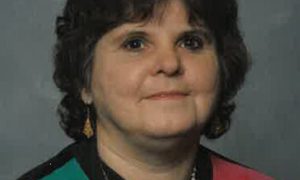by Norman Halls, contributor
In 2016, we witnessed the most unconventional of all political campaigns starting, with the primaries. We observed a manipulator with aggression related to race and ethnicity that was responded to with confidence. Pulling every punch in the book against 17 opponents and demagoguing the Chinese, immigrants, Mexicans, and radical Muslims for the great major of America’s problems. 2017 – the president-elect had no experience in governing and, so far, hadn’t added anyone to his tight inner circle who does, he has a misunderstanding about the presidency are essentially in crisis. The president-elect seemed surprised by the scope and the duties of running the country.
Given the incredibly high stakes of deposing present administration in 2020 you’d figure “electability” would be super-preeminent in choosing a nominee, even among Democrats focused on the ideological direction of the party. But as New York’s Eric Levitz notes, “electability” is hard to measure, and arguments based on electability are often made in bad faith.
That means, above all, Democratic candidates for president should be thoroughly and fearlessly vetted for missteps or misstatements that could become dangerously dominant in a general election campaign. And it strongly suggests that the field should be ruthlessly winnowed via all available means, whether it’s donor pressure or activist endorsements or actual consolidation behind a small number of strong candidates. “At the same time, Democrats must avoid the kind of ideologically driven bloodletting that contributed to the 2016 disaster via depressed turnout trends and third-party (and even cross-party) voting. It’s a narrow path to navigate, but simply keeping the field wide open and hoping for the best could produce another avoidable setback.” By Ed Kilgor NY Magazine
The next presidential campaign is going to be fought on unfamiliar battlegrounds to the present administration. They will have to be defending their record of accomplishments, distortions and lies. “The economy is also doing well. Though the president has not crafted any policies that diminish the middle- and working-class insecurity that motivated so many of his core supporters in states like Wisconsin, the stock market is booming; unemployment remains low. His critics rightfully point out that much of the rebound stems from the policies that President Obama put into place after the 2008 crash as well as the natural rhythm of the economic cycle.” By Julian Zelizer The Atlantic
Presidential approval ratings have revealed this administration to be the least popular in the history of modern opinion polling as of the start of his second year in office. Early polls have shown Democratic margin leading with several candidates, including Joe Biden, Bernie Sanders, Cory Booker, Elizabeth Warren, and Kirsten Gillibrand. These are not the candidates I personally would place in nomination. They are fine legislators and should support a candidate that the American people will support. The candidate for president has to have strong verbal communications skills, connect with the voters and earn respect while building relations for a successful interaction. I would suggest Senator Sherrod C. Brown, from Ohio. Brown might be the Democrats’ best hope for taking back the White House in 2020. A strong Democratic and Independent turnout is a key factor in any election. The 2020 election is just around the corner and leadership is needed to bring together a candidate to make the change in the right direction.
“This doesn’t just mean that the party must retain its concern with racial, gender, and sexual inequalities. It means that Democrats must move beyond vague discussions of diversity and opportunity, and begin committing themselves to fighting for a more substantive justice. It means they must make a real commitment to confronting income stagnation, rising inequality, and the increasing power of the rich in American politics.” By Josh Mound, Jacobin Magazine
The democrats need to concentrate on a leader that has the most potential of becoming President. Anyone can run for President. They must be a natural born citizen of the United States and reached the age of thirty-five years and have been a resident within the United States for the past fourteen years.








